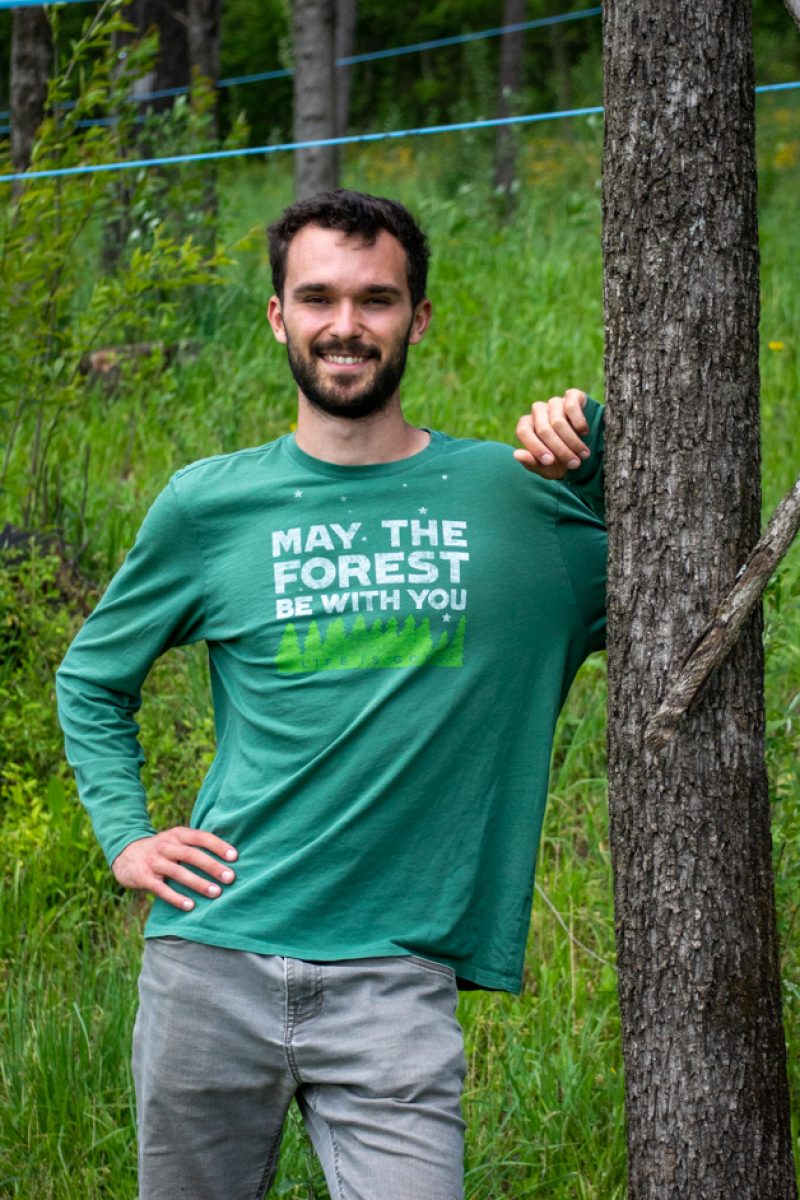
Senior Alex Mazarr
At Warren Wilson, every academic department requires a senior capstone project. Students presented their final Capstone projects at the 13th annual Capstone Carnival in early May. The carnival showcased culminating student scholarship on topics ranging from sociological studies of the criminal justice system to sustainable farm management plans. The name “carnival” was chosen by faculty because it suggested a celebration of the academic accomplishments of our graduates.
Below are a few of the senior’s final projects.
Alex Mazarr: Christmas Tree Hill Agroforestry Management Plan
For his capstone project, senior Alex Mazarr wrote an agroforestry management plan for Christmas Tree Hill on campus. The plan uses innovative and sustainable agroforestry techniques to sequester carbon, manage invasive species, and derive value-added forest products such as black walnuts, medicinal herb plants, and shiitake mushrooms. Alex has a background working as an aerospace engineer at NASA, and he decided to transfer to Warren Wilson to study forestry because he wanted to serve as a steward of the environment. He said he’s inspired by the land use practices of Indigenous People, and the way they’re able to maintain vibrant ecosystems while still deriving goods and services from the land. His goal is to bring those principles and values into the way we manage land today.
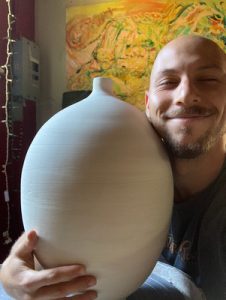
Ben Bloom: Various Art Projects
Art Major Ben Bloom has traditionally concentrated on ceramics in his work, but this year as an online-only student he didn’t always have access to a ceramics studio. Instead he found himself directing creative energy into analog photography, woodworking, and fiber arts projects. His fiber arts projects called “tree nets” are centered around active enjoyment of the natural world. Nets are a relatively young art form, originating from a type of environmental activism called “tree sitting” when activists stay for months at a time in the canopies of ancient California Redwood trees to prevent them from being cut down by lumber companies. Since it is hard to get comfortable in the tops of the natural giants without extensive supplies, tree nets became an elegant solution. “Ultimately these nets are about appreciation of the natural world in a minimalist way, and I feel so grateful to have found this niche that allows me to create work in the old trees that I am so fond of. In a year when social contact has been harshly minimal, building nets has presented a safe and rewarding community for me,” Ben said. He also built a truck camper with redwood boards and salvaged parts from boatyards. Click through the photos to see more of his projects, or visit his portfolio at https://benbloom.zenfolio.com/
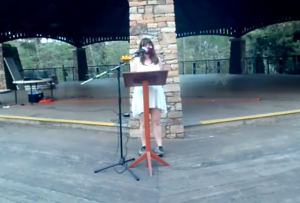
Max Gross: Senior Creative Writing Reading
Creative Writing Major Max Gross read from their fiction piece “Politics, Potions, and Other Peculiar Ideas” during the Senior Reading of Capstone Carnival. The story is set in a futuristic world within a repressive regime, a culture of surveillance and fear-mongering, and suppression of art and information. Like all good fiction about the future, it offers many questions of how to grapple with the present and serves as a complex and acute investigation into how we might recognize and alter our own world. View their reading.
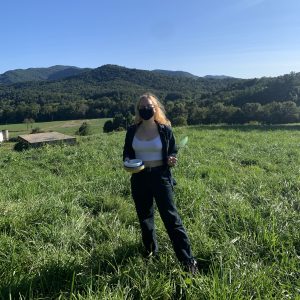
Riley Baker:Seasonal Abundance of Native Bees in Warren Wilson College Pastures and Forest Edges
Riley Baker, an environmental studies major with a concentration in sustainable agriculture, researched the seasonal abundance of native bees by sampling Warren Wilson College pastures and forest edges. Her research determined bee populations present on campus, analyzed the seasonal abundance within those bee families, and helped gain better understanding of bee activity, foraging patterns, and morphology. Her research lays a groundwork to better understand native bee population decline.

Asia Caldwell: Business Consulting Project – A Commercial Kitchen for WWC
Business Major Asia Caldwell did her senior capstone research on the efficacy of building a commercial kitchen on campus. A commercial kitchen would allow us to process non-timber forest products such as as tinctures and syrups from the College Forest, value-added herbal and vegetable products from the College Garden and specialty meats from the College Farm. It would provide teaching, research, and outreach opportunities for our students and surrounding communities. Asia’s research looked into the maintenance costs, equipment needs, and benefit to Warren Wilson, and her research will be used to inform the College on how to proceed with the decision.
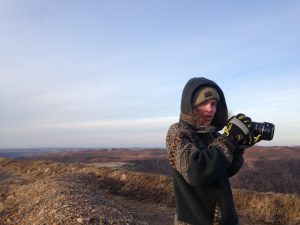
Griffin Harvey: Just Transition and a Post-Coal Future for Central Appalachia
Global Studies Major Griffin Harvey did his senior capstone on “The Just Transition and a Post-Coal Future for Central Appalachia.” His research looked at the environmental, health, and economic impact of mountaintop removal, what it would take to transition unemployed coal miners into sustainable occupations, and how organizations such as Appalachian Voices and Coalfield Development Corporation are working towards that goal. After graduation, Griffin will attend the Bard Center for Environmental Policy for a Master’s in Environmental Education. You can see more about Griffin’s work on his blog, https://griffinsgreenliving.wordpress.com
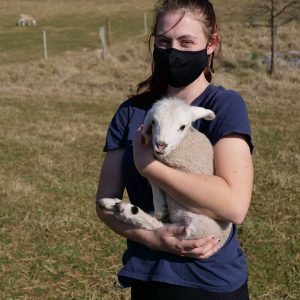
Allie Tkach: Body Condition Score vs. FAMACHA: Determining the Accuracy of Identifying Parasite Treatment Needs in Sheep
Warren Wilson College Farm Shepherd Allie Tkach did her senior research on understanding how to best assess parasite loads in our sheep. Her project is a great example of how a student’s work crew, pre-vet interests, and academics intertwine.
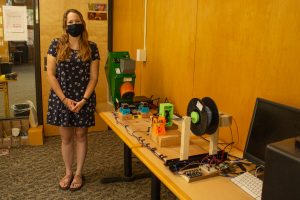
Sophie Allen: 3D Printer Automated Spooling System
Sophie Allen, a biology major and data science minor, addressed a problem of plastic waste produced by the 3D printer in the Creative Technologies Lab where she is a student crew member. For her capstone she created an Automated Spooling System to recycle 3D Printer waste. Her project is a great example of integrating academic and work experience, and contributing to the College’s sustainability goals.
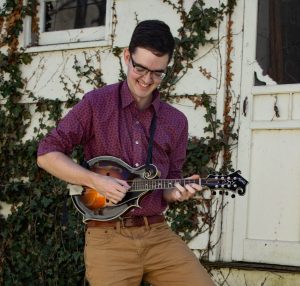
Robert Mills: Archeology and Music
As a double major in Sociology (with a concentration in Archeology) and Music, Robert Mills completed TWO final capstone projects during his senior year. His archeology project “The Hero Pioneer: Reworking The Common Swannanoa Valley Colonial Narrative” challenges the traditional narrative that is told of Samuel Davidson, the first colonial settler west of the Blue Ridge Mountains. Robert’s music project “Exploring the Development of Bluegrass Mandolin Style: A Selection of Influential Musicians” studies how bluegrass mandolin has changed over the years.